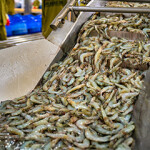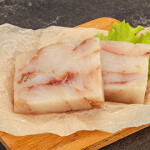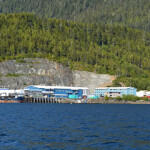Japanese Consumers' Cooperative Union to feature BAP-labeled smoked salmon

The Global Seafood Alliance announced on 4 October the Japanese Consumers' Cooperative Union will feature its first Best Aquaculture Practices (BAP)-labeled product.
The JCCU is a national federation of consumer cooperatives that supply food and other daily necessities to its members in Japan through supermarkets and home delivery.
GSA is an international, nonprofit trade association that seeks to advance environmentally and socially responsible seafood practices through education, advocacy, and third-party assurance, including the BAP program. The BAP certification is based on four pillars: environmental, social welfare, food safety, and animal health. The certification includes a “star designation” indicating how many of four supply chain stages – feed mill, hatchery, farm, and processing plant – an operation has verified policies in place for that meet the current best available science to assure compliance with the four pillars, and can be confirmed with a traceability program.
The product, on sale from 1 October, is a part of the “CO-OP Sustainable” series, and is labeled, in Japanese, “Smoke Salmon Trout Kiriotoshi” It is a 70-gram package of trimmings of cold-smoked ocean-farmed rainbow trout. The fish is sourced from Puerto Montt, Chile-based Alimentos Multiexport. The smoked salmon product has earned four stars under BAP’s star designation system.
JCCU’s private-label “CO-OP Sustainable” series currently consists of 84 products that meet independent standards “designed to protect people and the planet.”
Ocean-farmed rainbow trout is called “salmon trout” in Japan, while freshwater rainbow trout is usually called by the Japanese name niji-masu (a direct translation of “rainbow trout”). Kiriotoshi can be literally translated as “cut and dropped,” but it generally designates random cuts of various sizes and shapes packed as they fall, as opposed to uniform cuts neatly arranged. They are consequently usually cheaper.
“I would like to commend JCCU for taking this step to show their strong commitment to sourcing responsibly sourced seafood,” GSA Vice-President of Market Development Steve Hart said. “They are among the leaders in Japanese retail when it comes to providing and educating about responsibly sourced seafood to Japanese consumers.”
Japan is an emerging market for the BAP program, with 24 organizations now endorsing the BAP program. As of the end of August, there were 3,102 BAP-certified farms, processing plants, hatcheries, and feed mills worldwide, with the farms producing 2.68 million metric tons of seafood annually.
Photo courtesy of Global Seafood Alliance






Share